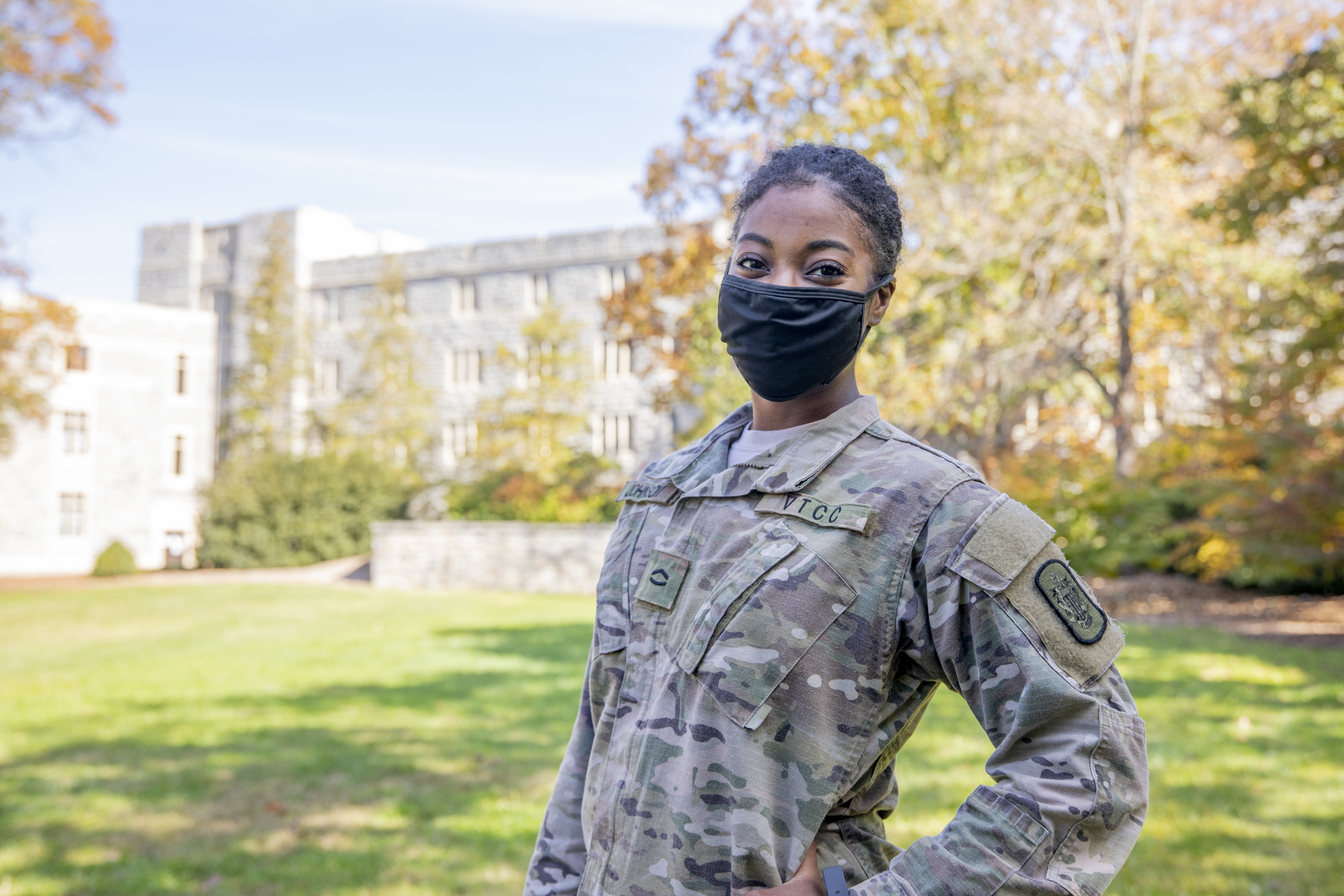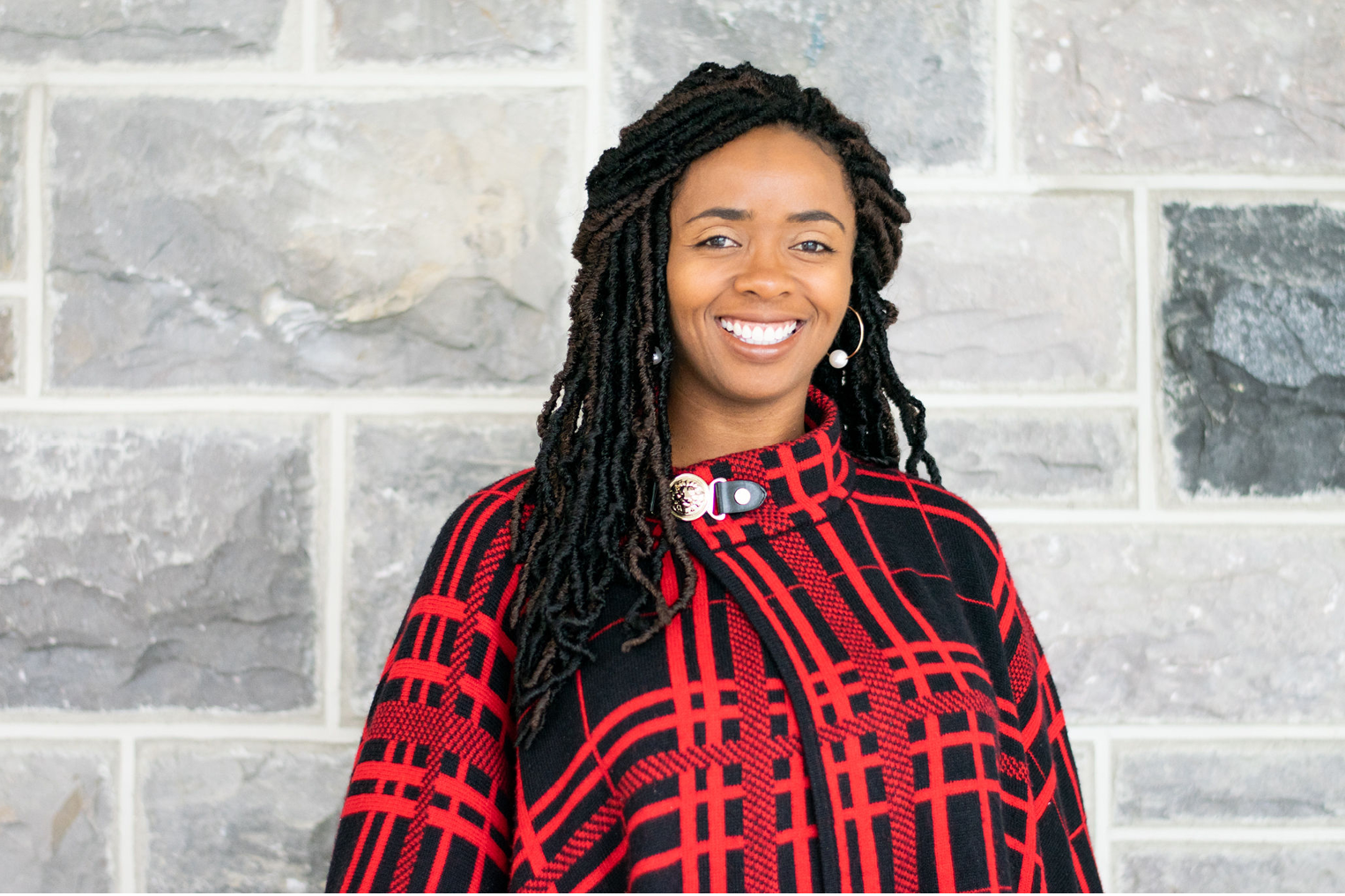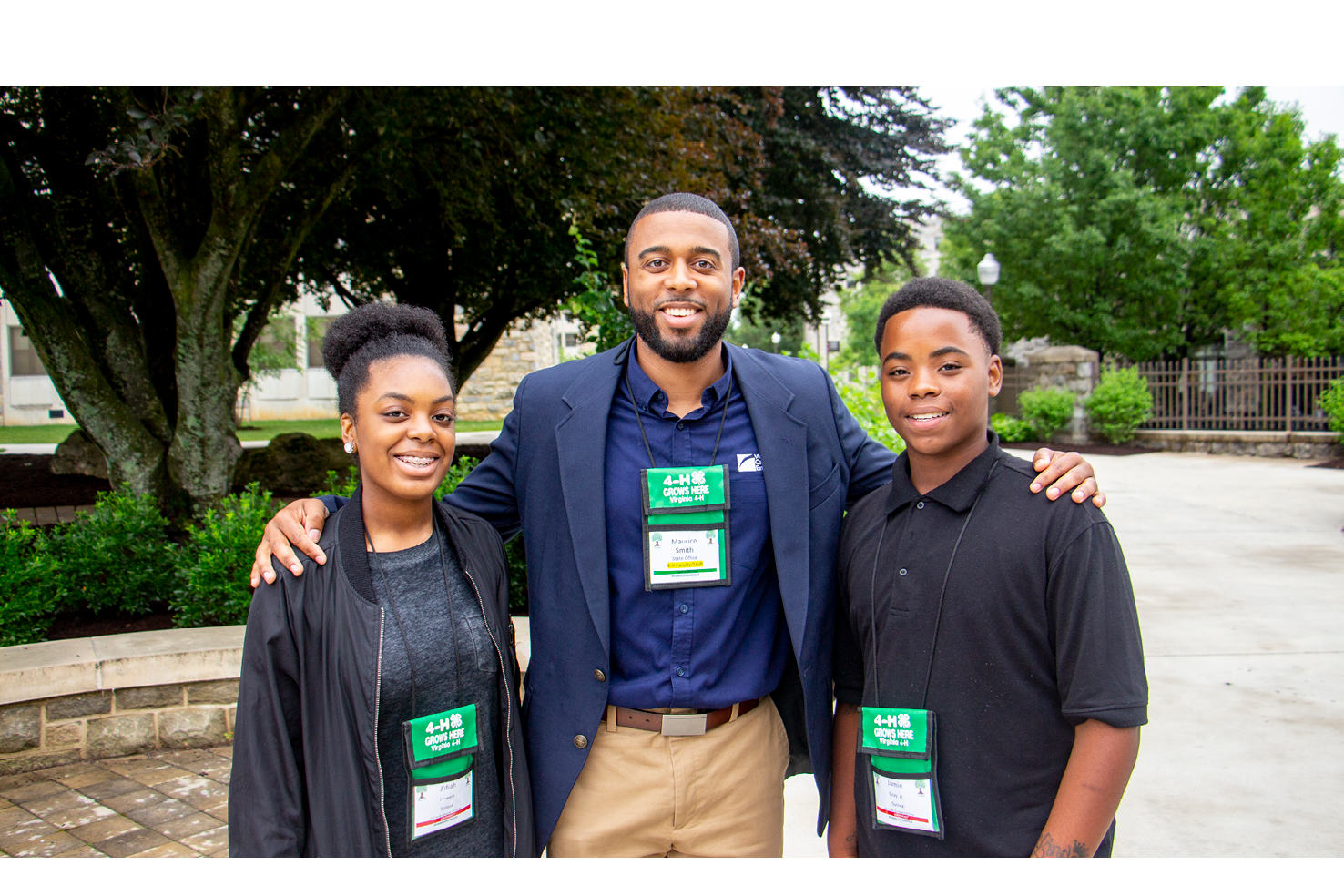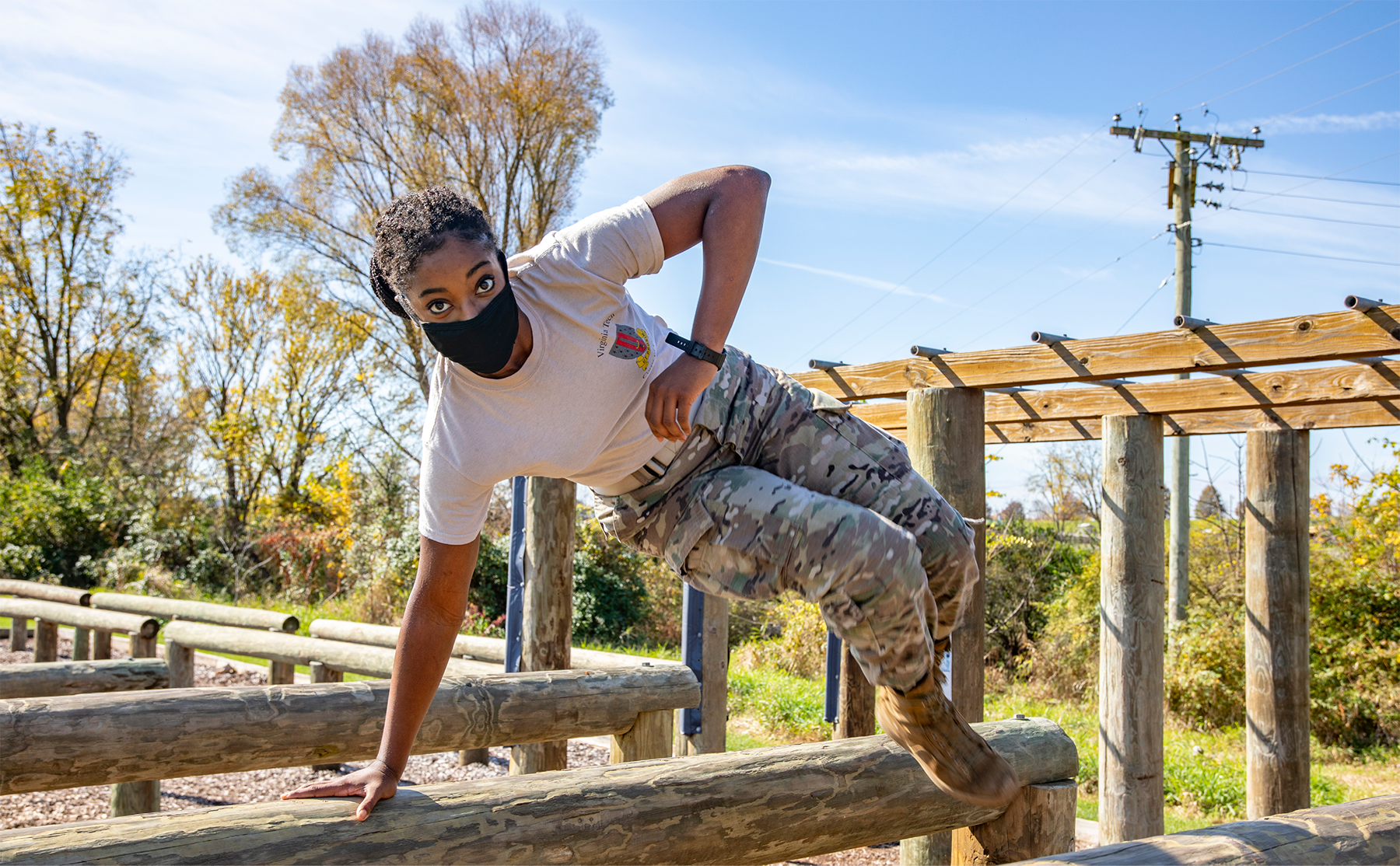
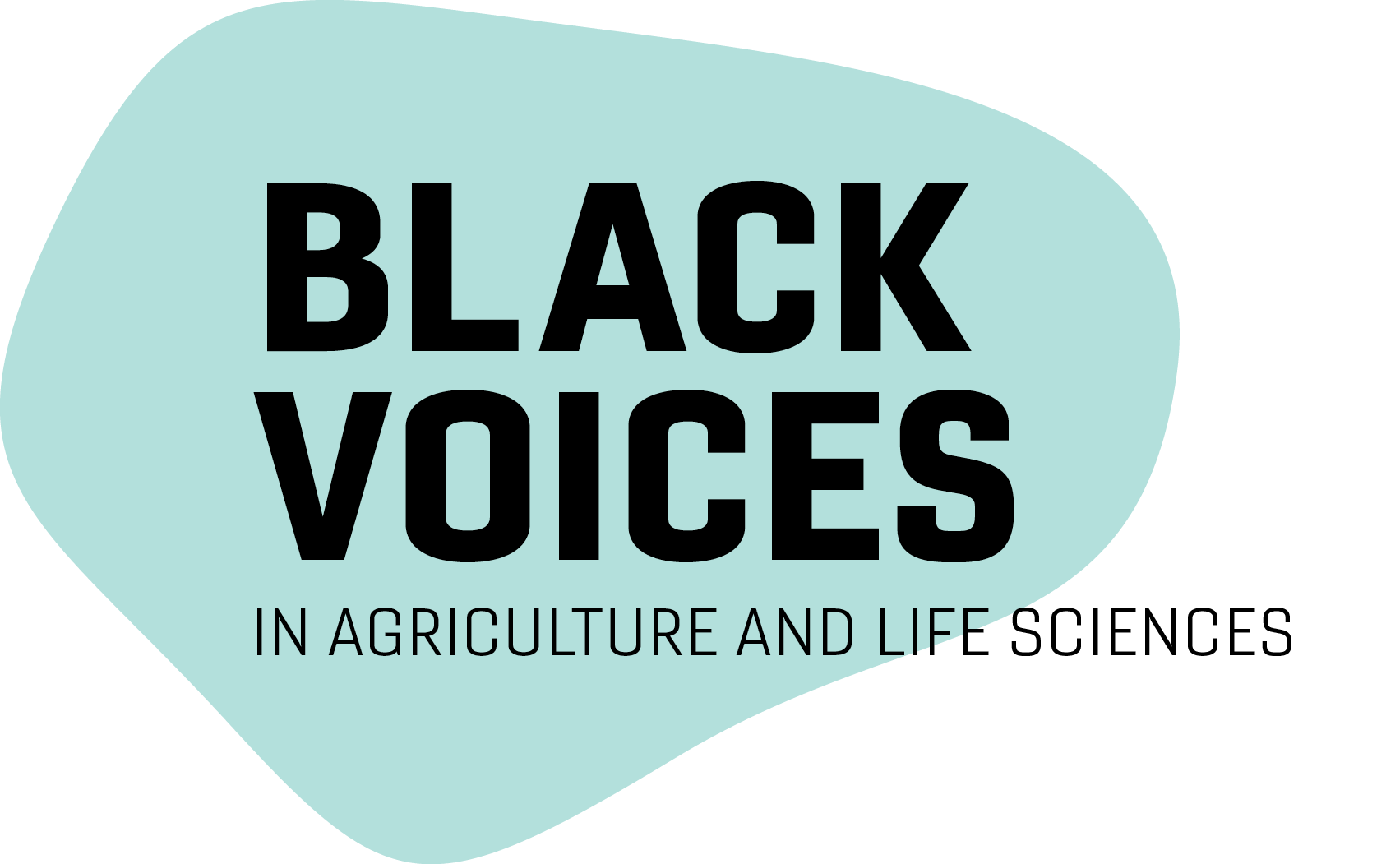
Over the last year, Americans spent a lot of time examining our country’s history of race relations and talking about how we interact with each other today. Our college was no different.
CALS is committed to lifting up voices of minorities in agriculture and life sciences so they can share their successes and their challenges, and examine what can be done to make society more supportive and inclusive for all.
Over the last year, Americans spent a lot of time examining our country’s history of race relations and talking about how we interact with each other today. Our college was no different.
Brooke Johnson ’21 is a sophomore in the Department of Animal and Poultry Sciences and serves as the president of Minorities in Agriculture, Natural Resources, and Related Sciences (MANRRS). She is also a sergeant in the Corps of Cadets.
What inspired you to pursue a career in agriculture?
I enjoy working in science and found that my interests lie in between animal science and welfare. It is an intricate field to enter with plenty of opportunities, and I have enjoyed all the experiences in which I have been involved. I always had a passion for animals when I was a child, and that passion never faded. It was always a natural choice for me to pursue a career in agricultural sciences growing up, and attending Virginia Tech helps me with this dream.
How does MANRRS elevate Black and minority students?
MANRRS provides an open and motivating environment for students to gain experience and knowledge about the natural sciences, agriculture, and natural resources. We aim to supply the industry with a diverse pool of student leaders, and we have a sincere passion for improving and enhancing the world around us. We attempt to provide networks to support the professional development of minorities, and we offer students opportunities to enhance their leadership, public speaking skills, and more.
What are a few things that need to be done to improve the support of minorities in higher education?
A great deal of issues in higher education are related to the systemic racism that still lingers in our society to this day. To confront the discrimination that minorities handle daily, the first step is to acknowledge the prejudice that exists. There are multiple ways to approach the improvement of minorities in the STEM world, and most of the ideas center around enhancing equality between all races. A couple of very important concepts that need to be adopted within our university are building a more diverse faculty and administration, recommending diversity and inclusion training, and conducting annual surveys on students’ sense of belonging at the university.
Thorpe has a Ph.D. in biochemistry from Virginia Tech and is currently a collegiate assistant professor in the Department of Biochemistry and is the director of Inclusion, Diversity, and Equity for CALS
As a scientist by trade, what is the importance to you of being a role model to others?
Throughout my journey in education, I have had the privilege of having many phenomenal mentors and role models. These individuals not only inspired me but helped to clarify my sense of purpose, navigate successes and failures, and become the best version of myself. Because of the salient identities I carry as a Black woman in STEM, I am very aware that my presence in higher education is not the norm. How I carry myself and interact with those around me as a professional can impact how people perceive those who look like me. Being a role model is important because I recognize that representation matters. I want to be a person whose behavior, example, and success can be emulated by others. I do not take for granted the position and privileges that I have in my roles and I aspire to give back and influence others to become the best versions of themselves.
What needs to be done to make agriculture and life sciences more inclusive and supportive of minorities?
The first step to making any change is building recognition and awareness of where we are. CALS is currently in a liminal space between who we are and who we aspire to be as an inclusive and equitable leader within the university. To create a more inclusive college that is supportive of everyone, including minoritized and under-invited people, it will take intentional and continuous engagement from every member of the college. We all have a role in building a healthy and diverse workplace culture, where our peers feel supported, respected, and included. I encourage members of CALS to continue to ask questions, engage, and reflect. In whatever learning opportunities you choose to take advantage of, focus on building authentic relationships: observing, listening, and asking those who are from different backgrounds, to share, and to enter the dialogue. Being aware of our shared needs and the impact of our biases, our workplace can be a more productive and welcoming space for everyone.
Smith has a Master of Science in Agriculture and Extension Education from Virginia Tech and a Ph.D. from Penn State. Smith is a former assistant professor at Virginia State University and 4-H youth development Extension specialist, now working as a national program leader with the US Department of Agriculture, National Institute of Food and Agriculture. He serves in a role working with 4-H Youth development and 1890 programs.
What is the importance of diversity in organizations such as Virginia Cooperative Extension? What is the significance of you being a role model?
Diversity in Extension gives us a unique and well-balanced, critical skillset of people who can serve all of our commonwealth. The importance of having agents, specialists, faculty, and staff who all look different and carry a level of expertise based on their knowledge and lived experience can benefit an organization such as Extension. I think having served in critical roles within Extension and Virginia State University has helped build stronger partnerships for the organizations.
What are some of the challenges you’ve faced along your journey? What inspired you to persist through these?
As a Black man in agriculture, I have faced both ageism and racism. I always strive to reach my highest potential and work hard to understand younger or older audiences regardless of differences. What inspired me to persist through these challenges is staying motivated and humble, and I prayed to tackle things one by one. I think my challenges have helped me create civil dialogue spaces to engage in so others can hear and understand my challenges and lived experiences.
How do you want to elevate minorities in 4-H?
My research revolves around the involvement of minority communities, young Black male youth, and parents in 4-H. For example, to recruit more African American young men into 4-H, do we have our coaches and barbers who serve as role models volunteering? Do we have minority leaders in the community serving as volunteers? Are church groups, community groups, fraternities, and sororities volunteering? Does our 4-H merchandise, curriculum, and programs appeal to minority audiences? I want to elevate 4-H with new and innovative programming ideas to increase minority youth enrollment in 4-H programs.
